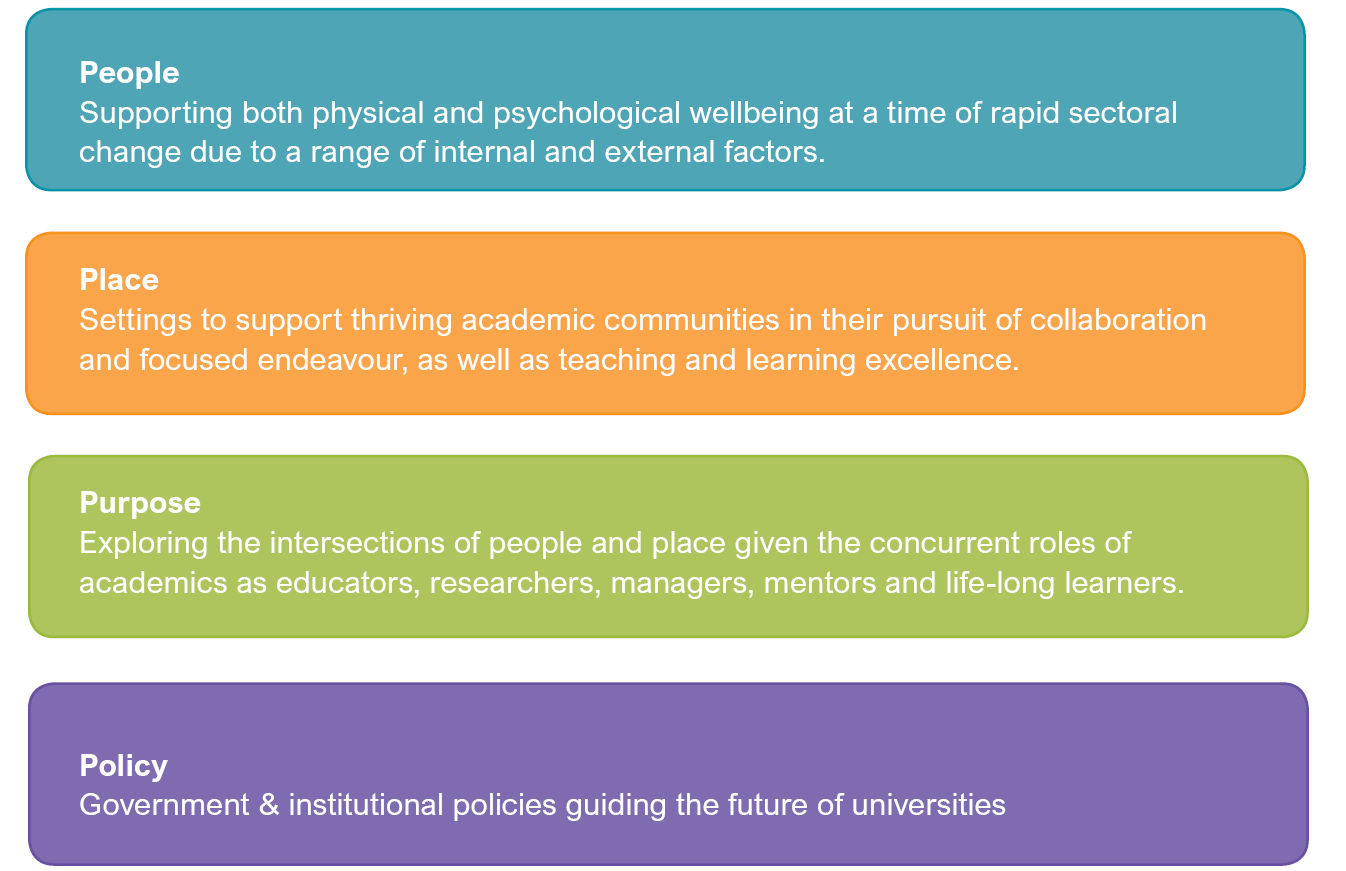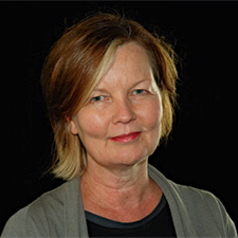A research and consultancy program led by LEaRN at the University of Melbourne. Further research and consultancy projects will follow this initial 2019 to 2020 pilot project.
About
In the higher education sector, academic workspace remains an emotive topic. It is bound closely with identity, purpose and status. As universities increase their focus on cross-disciplinary collaboration and convergence research, the sanctuary of the individual office is under challenge. Institutions are increasingly looking towards industry to inform and inspire new academic workspace typologies to support the sharing of resources, ideas, knowledge and expertise within, across and outside spatial contexts. There is change ahead.
LEaRN’s Academic Workspace Evaluation (AWE) project is exploring the issue of academic workspace through the lenses of People, Place, Purpose and Policy. Our research is guided by a multi-disciplinary team of architects, workspace strategists, learning environments experts and workspace evaluators. We are mapping the territory of the issue, examining past, present and future contributing factors, and developing tools to inform the design and evaluation of both spaces and processes. This program of research seeks to answer these primary questions:
Which new spatial typologies are best supporting the full range of an academic’s work activities?
Which engagement processes and design strategies are supporting these positive outcomes?
Our ongoing research seeks to provide both theoretical and practical evaluative approaches to guide university management, facilities teams, design teams and academic teams in developing workspaces that achieve a ‘better fit of people-purpose-place’.

The AWE project is supported by a LEaRN Seed Grant and a Research Development Grant funded by the Faculty of Architecture, Planning and Building at the University of Melbourne.
Detailed project outline
-
Objectives
- Develop academic workspace evaluation approaches that are informed by user experience and shared values, as a complement to tradition POE approaches;
- Evaluate new typologies of academic workspace for alignment of people, process, place and policy;
- Share findings from these evaluations with the higher education sector to inform inclusive process design and workspace outcomes; and
- Support positive change at a time of rapid sectoral change.
-
Outcomes
A Scoping Review is analysing peer-reviewed and grey literature on the topic, overlayed with insights from 14 Expert Interviews spanning perspectives from senior management to environmental psychology to facilities management to change management.
This scoping work is informing our development of the academic workspace evaluation (AWE) approach that brings together strategies developed and applied by the project team over the past decade for learning space and workspace evaluation. We are piloting the AWE with three academic workspace Case Study projects.
-
Impact
Over time, we envisage the AWE approach to contribute a compelling evidence-base to inform nuanced, inclusive conversations about the future academic workspace in support of scholarly endeavour in a rapidly changing world.
People
-
 A/Prof Clare Newton, Associate Professor
A/Prof Clare Newton, Associate Professor -
 Sarah Backhouse, LEaRN Research Fellow
Sarah Backhouse, LEaRN Research Fellow -
 A/Prof Lucio Naccarella, Principal Research Fellow, Centre for Health Policy
A/Prof Lucio Naccarella, Principal Research Fellow, Centre for Health Policy -
 A/Prof Kenn Fisher, Associate Professor in Learning Environments
A/Prof Kenn Fisher, Associate Professor in Learning Environments -
 Dr Ben Cleveland, Senior Lecturer
Dr Ben Cleveland, Senior Lecturer
Banner: Typological plans of academic workspaces. Image by Sarah Backhouse.